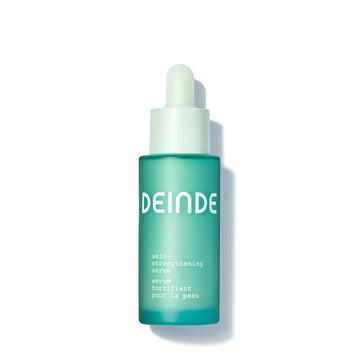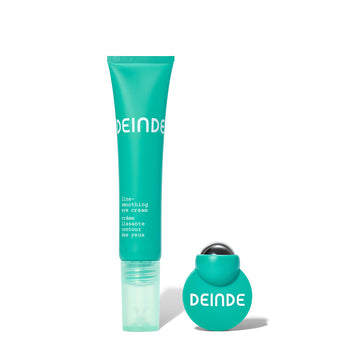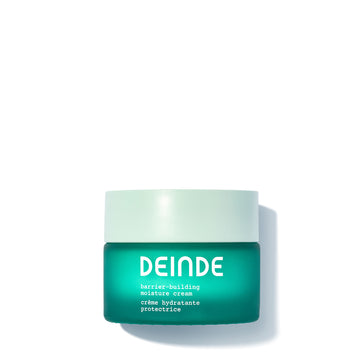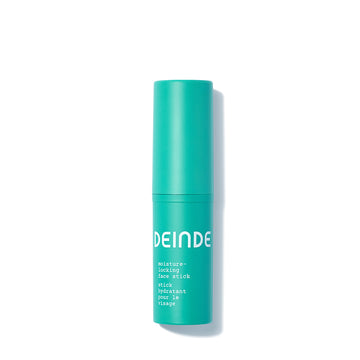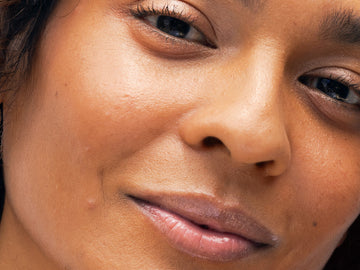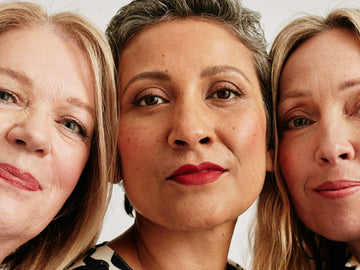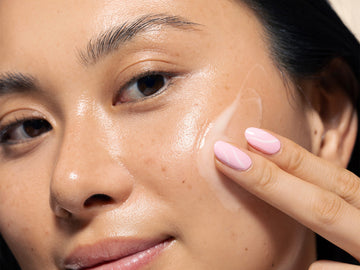
Preventative vs. Anti-Aging Skincare
As a society, we have an absolute fascination with the concept of youth. Is it because it signifies a new beginning? Uncovered potential? The promise of what could be?
It comes down to the understanding that young skin is synonymous with healthy skin. In our early years, skin is remarkably resilient and vibrant. Collagen and elastin are plentiful, while cell turnover is at its most efficient. The continual replacement of old, damaged cells with new ones results in a smooth, radiant, and dewy complexion that’s able to quickly recover from environmental stressors.
The industry has caught on to this collective draw towards skin as it once was — developing formulations that are generally divided into two buckets: preventative and anti-aging. While there’s a larger conversation to be had about how we view aging as a society, breaking down the difference between anti-aging and preventative skincare products is a good place to start.
Skin ages alongside you. It’s unrealistic to have the same dewy skin throughout the years, but there are practical methods and products that support skin health and minimize the visible effects of aging. At the end of the day, skincare products are designed to encourage skin to operate at its very best. Skin that is hydrated, resilient, and radiant is a direct indicator that the body is functioning optimally — reduction of visual signs of aging is just a bonus.
How does the aging process impact skin?
Aging is a complex and natural process influenced by various factors. Genetic disposition plays a large role in dictating how an individual ages — specifically, the efficiency of the skin’s repair mechanisms and how it reacts to oxidative stress. Environmental factors, like UV radiation and pollution, paired with lifestyle choices, can significantly impact the aging process. For example, smoking accelerates aging by promoting collagen degradation through oxygen and nutrient flow reduction.
Collagen and elastin shift most notably play a part in aging. Collagen, a structural protein that provides skin with strength and elasticity, gradually decreases over time. In our 20s, natural production begins to slow alongside the synthesis of collagen fibers, resulting in a decline in firmness and resilience. Elastin, the protein that provides elasticity and stretch, similarly degrades over a lifetime.
Our skin ages through cellular damage that is driven by oxidative stress and inflammation. When we are exposed to overwhelming environmental factors or internal stress, our skin’s natural defense mechanism becomes maxed out, resulting in an increase of reactive oxygen species (ROS). ROS not only damages essential cellular structures but contributes to the breakdown of collagen and elastin. Together, these processes accelerate the visible signs of aging — wrinkles, sagging, dullness, and loss of skin elasticity.
Another key player in aging is inflammaging, a state of chronic, low-grade inflammation linked to an overactive immune response to the accumulation of pro-inflammatory molecules. Inflammaging accelerates aging by compromising the structural integrity of the skin. Existing in a constant state of inflammation exacerbates collagen and elastin degradation, compounding cellular damage and rapidly accelerating both visual and underlying aging processes. Chronic inflammation impairs the skin's ability to repair and regenerate, making the skin more susceptible to environmental stressors.
What are preventative approaches to skincare?
They say that an ounce of prevention is worth a pound of cure — we agree. In our eyes, thriving skin does best when proactively supported over time. Preventative skincare understands that maintaining skin health is an ongoing process that begins long before visible signs of aging surface. Protection is a key element here to shield the skin from as many environmental stressors as possible. Early habits surface later in life — a preventative approach helps reduce the intensity of environmental stressors, oxidative damage, and the natural aging process. When considering preventative approaches to skincare, some ingredients and concepts to keep in mind include:
- Inflammaging → addressing chronic low-grade inflammation before it compounds is crucial for preventative skincare. As a reminder, inflammaging is known to accelerate aging due to the body existing in a state of immune system activation. The constant release of pro-inflammatory cytokines (IL-6 and TNF-α) contributes to the breakdown of collagen and elastin. Proactive mitigation of inflammaging, through targeted skincare ingredients like Naringenin, can disrupt this cycle of chronic inflammation.
- Retinol → low strength, over-the-counter retinol can help support the cell turnover process. When applied topically, retinol supports proper gene expression and collagen synthesis, in addition to removing aged and damaged skin.
- Sun Protection → Sun protection is essential for sustaining the structural integrity of the skin and mitigating the risk of future damage. UV rays can cause issues like sunburn, premature aging, hyperpigmentation, and an escalated risk of skin cancer. Applying broad-spectrum sunscreen with at least SPF 30 daily provides a protective barrier that absorbs or reflects harmful UV rays.
- Free-Radical Defense → Free radicals are unstable molecules that can induce cellular damage by stabilizing themselves via electron theft from neighboring molecules. Preventative skincare strategies include the incorporation of antioxidants (Vitamin C & E) that support skin health during exposure to free radicals. Regular use of antioxidant-rich products helps minimize the look of signs of premature aging by supporting the skin's natural defense mechanisms.
- Hydration Maintenance → The first age-related changes seen in the skin involve moisture loss. As oil gland production slows down, hydration levels follow. Ensuring adequate hydration with ingredients like hyaluronic acid and ceramides is fundamental for skin health, creating more resilient skin that functions optimally.
What is anti-aging skincare?
Anti-aging skincare refers to mitigating and addressing visible signs of aging that already exist through targeted ingredients and formulations designed to combat concerns such as wrinkles, fine lines, dark circles, sagging, and uneven skin tone. Unlike preventative skincare, which focuses on proactively maintaining skin health and preventing damage in the future, anti-aging understands that what has happened has happened — and provides formulations for effects of aging that have already manifested. Potent active ingredients in higher doses are king here. Remember that anti-aging skincare products can be on the harsher side and may require careful integration into a skincare routine. Sensitivity or irritation can be an issue, especially if you have particularly sensitive skin to begin with. We encourage a gradual and cautious approach, paired with consistent sun protection, when incorporating anti-aging formulations. Ingredients you may want to look for include:
-
Retinoids (retinol) → Supports collagen synthesis, maintains healthy cellular turnover, and reduces the appearance of fine lines and wrinkles. At higher levels (prescription strength), retinoids can significantly alter the skin. Note that these ingredients are harsh and associated with an increased risk of irritation, dryness, and sensitivity.
-
Vitamin C (Ascorbic Acid) → Helps support the skin during exposure to oxidative stress and supports collagen synthesis and acts as a potent antioxidant when free radicals strike. Be sure to pair Vitamin C products with adequate sun protection to maximize brightening and anti-aging benefits.
- Peptides are essential components in anti-aging skincare as they support healthy collagen production. These small protein fragments act as bioactive messengers, signaling skin cells to maintain efficient collagen synthesis. When peptides interact with skin receptors, a cascade of molecular events are triggered that contribute to collagen production.
- Alpha & Beta Hydroxy Acids (AHAs & BHAs), like glycolic acid and ferulic acid, are powerful exfoliants in anti-aging formulations. AHAs, like glycolic and lactic acids, work to support cell turnover, improving overall skin texture and appearance. BHAs, like salicylic acid, work deeper in the pores to target skin concerns like breakouts and blemishes.
Skin is an investment
We encourage reframing how we view the act of caring for our skin. Skin, the body’s largest organ, requires consistent care to maintain optimal cellular function and appearance. This investment of time, of care, or applying formulations can influence collagen production, cellular turnover, and overall skin resilience.
Just like we allocate resources across our financial portfolio, into our relationships, to our goals, personal and professional, a well-considered skincare routine yields dividends through healthy, radiant skin for years to come. Preventative skincare is a daily investment that helps to protect the skin from premature aging, sun damage, and environmental stressors. When developing a personalized routine, remember that these products have varying levels of harshness — consider your skin type and needs, and integrate new products slowly into your day-to-day.
Studies cited:
- Retinoids In The Treatment of Skin Aging: An Overview of Clinical Efficiency and Safety | NIH
- Natural Anti-Aging Skincare: Role and Potential | SpringerLink
- Preventative Skin Care During Skin Aging | Academia
